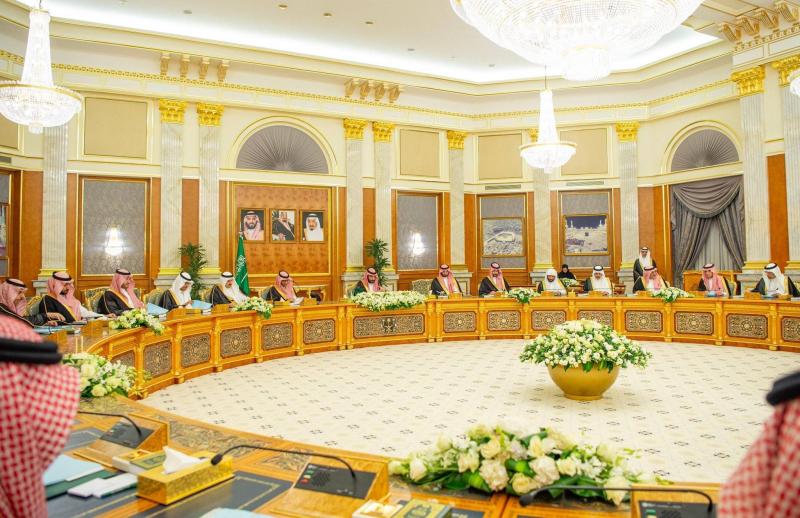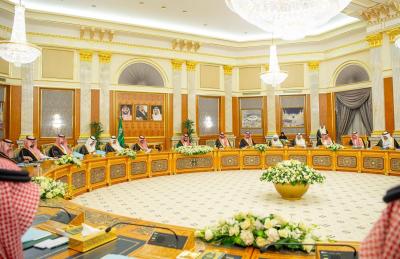The Saudi Council of Ministers has endorsed the launch of the Gulf Cooperation Council's vision for regional security, which aims to maintain stability in the region and promote the prosperity of its countries and peoples, as well as enhance international security and peace. This came following the Council's session, chaired by Crown Prince Mohammed bin Salman, the Prime Minister of Saudi Arabia, in Jeddah on Tuesday, where they discussed areas for enhancing cooperation and coordination between the Kingdom and various countries worldwide within the framework of regional and international organizations, in a bid to advance collective work towards achieving stability and prosperity, and supporting sustainable development goals.
At the beginning of the session, the Crown Prince expressed gratitude to God for allowing the country to host millions of pilgrims during the past days of the holy month of Ramadan, enabling them to perform their rituals and acts of worship smoothly and peacefully, thanks to His guidance and the directives of the Custodian of the Two Holy Mosques, King Salman bin Abdulaziz, as well as the concerted efforts of state agencies in serving the guests of God with the highest levels of care and quality.
Crown Prince Mohammed bin Salman briefed the Council on the contents of a message he received from Abiy Ahmed Ali, Prime Minister of the Federal Democratic Republic of Ethiopia, regarding bilateral relations and ways to support and enhance them in various fields.
The Council also reviewed the outcomes of the annual meeting (the 31st) of the region's governors, reaffirming the state’s commitment to enhancing comprehensive development across all areas of the Kingdom, including the continued improvement of services provided to citizens and residents and the elevation of their quality of life.
The Council decided that the state will cover the costs associated with those who are allowed to remain and correct their status among the displaced individuals from neighboring countries, including (residency fees, work permit fees, service transfer fees, profession modification fees, and financial charges on private sector establishments), for a period of four years from the date of correction. The state will bear all previously incurred charges, financial fees for their companions, and fines associated with residency violations.




